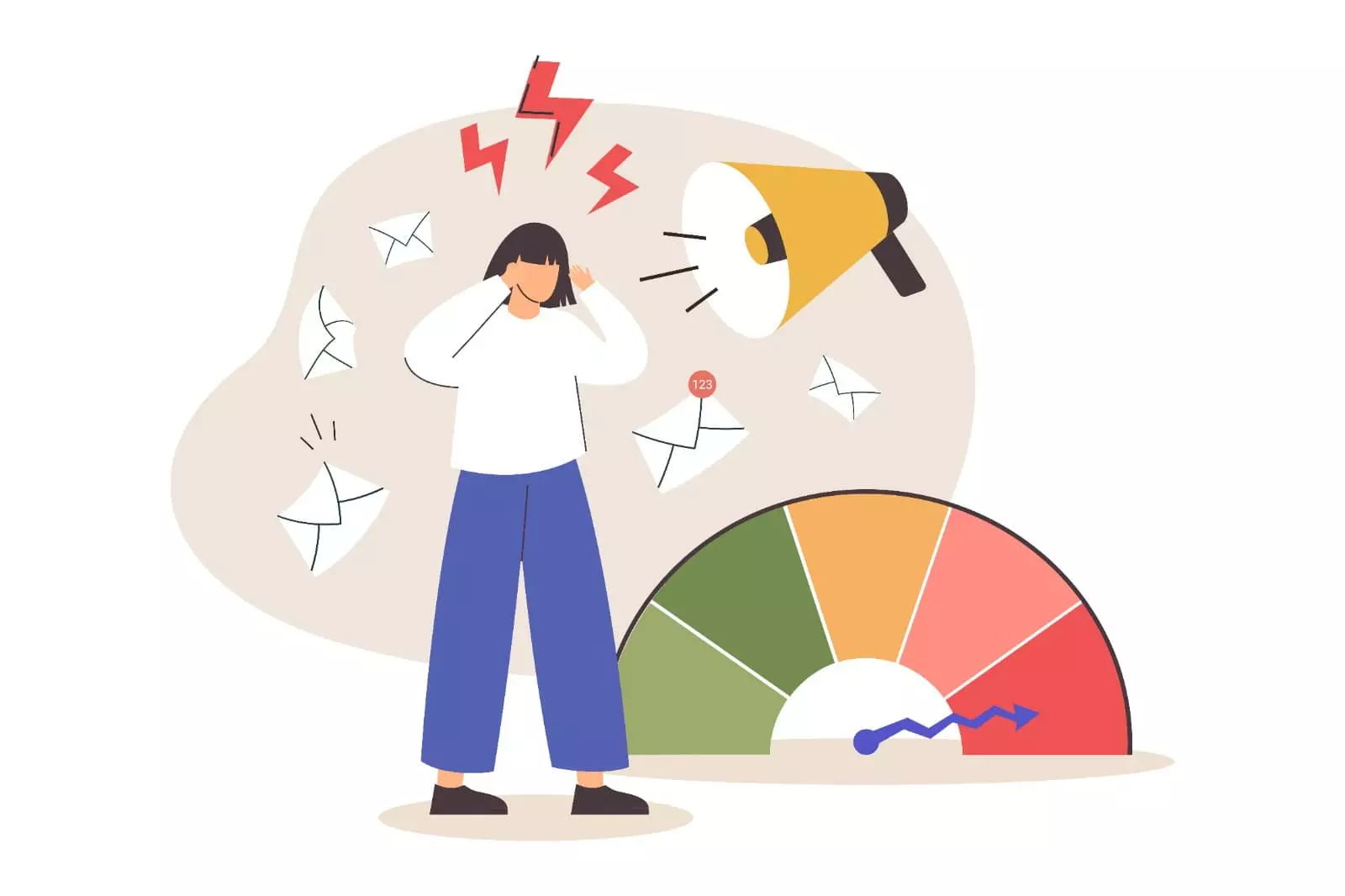Tachophobia; the Fear of Speed
Are you afraid of driving, biking or even walking too fast?
Does this fast pace of life panic you without any obvious reason?
Do you feel anxiety if someone is talking or eating at a fast speed?
If you cannot enjoy a roller coaster ride with your loved ones because it’s moving too fast then you may have tachophobia.
Definition
Derived from a Greek word, Tachophobia is the fear of high speed. It is a type of specific phobia in which there is an unreasonable and persistent fear of speed. Some people with intense fear of speed try to avoid fast moving objects to such an extent that it can affect their job and daily routine. They limit themselves at their home and avoid travelling by air, bus or cars. According to a research, approximately 12.5% of U.S. population experience specific phobia at some points of their life, in which females are more affected than males.
Causes
- Past history of any traumatic incident related to fast speed, e.g. accident of him or a loved one due to fast moving vehicle.
- Fear of high speed driving can be a major cause and people get afraid to while driving alone or simply sitting on any vehicle. They may get anxiety with speed cameras on the road even if they are not speeding.
- Genetic predisposition to specific phobias and familial tendencies of anxiety and depression. It can be interlinked with other specific phobias like thanatophobia.
- Specific phobias can occur without any previous history of stress, anxiety, depression or genetic predisposition.
Symptoms
The symptoms can be divided into physical and psychological.
| Physical Symptoms | Psychological Symptoms |
| Trembling, shaking, shivering, hyperventilation | Intense anxiety and panic attack |
| Dizziness and lightheadedness, numbness, syncopal attack | Fear of dying |
| Tremors, palpitations, sweating, headache | Feeling overwhelmed in high speed traffic, loss of concentration |
| Chest tightness, shortness of breath | Avoid going to long-distance grocery stores or meeting with friends |
| Nausea, vomiting, stomach upset | Fear of losing control or get caught due to high speed |
| Muscle tension, spasm | Self-isolation |
Complication
- Difficulty in continuing job or finding better opportunities, thus restricting personal growth.
- Limitations in daily activities like going to grocery stores, barber shop.
- Self-isolation and avoidance of friends and family gatherings.
- If the fear of speed persists, it can lead to chronic anxiety and stress disorder.
- Prolong phobia leads to emotional stress of losing their favorite activities and friends circle.
- Substance abuse due to anxiety disorder like drugs, alcohol.
Diagnosis of Tachophobia
The diagnosis is done by health care professionals like psychiatrists and psychologists. Diagnosis is done by personal and family history, examination and psychological evaluation through Diagnostic and Statistical Manual of Mental Disorders (DSM-5-TR).

Individuals may be assessed by questionnaire as well as examination, which include:
- When and how did they find out that they have fear of speed?
- What were the symptoms and duration of those symptoms?
- Is the fear so uncontrollable that it leads to immediate and unjustifiable anxiety and panic attack?
- Is the panic attack more severe as compared to the actual speed of the vehicle?
- Does it affect their daily routine and job?
- Does think of going on a roller coaster or watching a movie of speeding cars leads to palpitations or anxiety.
- Any past bad experience related to high speed like accident of him or any beloved family member?
- History of other specific phobias, generalized anxiety disorders or obsessive compulsive disorders.
- Examining the individuals by their reaction towards fast moving objects.
How to Overcome Tachophobia
Fear of high speed driving can be controlled by a multidisciplinary approach. This involves a team of doctors including psychiatrist, psychologist, CB therapist, anxiety therapist, neurologist, phobia specialist and support groups.
5 proven therapies for Tachophobia
Cognitive-Behavioral Therapy (CBT)
- Primary therapeutic intervention for treating the symptoms.
- Identifying the root cause, beliefs about speed, and then exposing the individual to fast speed stimuli in a slow and steady manner.
- Teaching relaxation and coping techniques for stress and panic attacks.
- Home assignments for learning new skills.

Exposure Therapy
- Gradually exposing the individual to fast speed like riding a car or roller coaster until the thrill of speed overcomes the fear of death.
- Exposure to speed related scenarios through virtual technologies.
- Desensitize the individual by repeating the exposure in a controlled manner.
Hypnotherapy
- Digging deep into the subconscious mind and finding the root.
- Rewiring the brain by replacing negative thoughts and establishing positive relationship with high speed.
- Introducing relaxation techniques and positive self-talk during high speed event.
- Emotional freedom technique to reduce stress and anxiety.
Support Group Therapy
- Connecting with people having similar issue.
- Sharing their personal experiences, coping techniques, success stories.
- Getting motivation and encouragement from fellows who had similar episodes.
Mindfulness Based Stress Reduction (MBSR)
- Learning mindfulness to overcome anxiety in daily life by increasing the present-moment awareness.
- Practicing meditation techniques like yoga and tai-chi for incorporating relaxation.
- Incorporating self-empathy and acceptance towards any form of fear.
Dietary Modifications
Individuals can improve their quality of life by introducing healthy diet in their routine which includes green leafy vegetables, lean protein, whole grains, low-fat dairy products, colorful fruits, nuts and seeds.
Lifestyle Modifications
- Aerobic exercise like swimming, cycling and jogging can help in coping with stress and anxiety.
- Positive self-talk and positive affirmations during a high speed event, like “I can face my fear of speed confidently” or “I am not afraid of anything”.
- Watching videos of fast moving objects or going to nearby grocery stores and gradually increasing the distance and speed.
- Meditation and yoga at home, like deep breathing and progressive muscle relaxation.
- Becoming a part of support groups where there are individuals with similar experiences.
- Writing down the negative thoughts about their fear, triggering factors and coping methods to identify the root cause and to track the own progress.
- Limiting the use of caffeine as use of excessive caffeine can induce anxiety and panic attacks in individuals with stress disorders.
- Aromatherapy for stress relieve can be done by essential oils like lavender, chamomile and bergamot oil. These oils can be used in a diffuser or bathtub.
- Identifying the triggers and seeking help from a professional.
- A good sleep of at least 7 to 8 hours.
- Regularly connecting with loved ones to overcome self-isolation.
Medications:
Anti-psychotic, anti-depressants and beta blockers can be given to individuals during severe panic attacks. These medicines can be given for a short period of time along with other behavioral therapies.
Opposite of the Fear of High Speed Driving
In contrast, some individuals are obsessed with speed. From speeding vehicles to fast-paced life, they like to speed up everything. It is not only because of complexity of the modern world, but also because of increased growth of globalization and nature of an individual to speed up everything in his life.
Interesting facts about Tachophobia
- Approximately 2% of the population suffers from fear of speed at some point in their life, in which female are 3 times more affected than males.
- Effected individuals are afraid to ride a roller coaster, fast walking, talking at a fast speed or even fast pace of life e.g. growing kids, going to colleges and settling in their life.

- Symptoms range from mild anxiety to full-blown panic attack, but they can be controlled by behavioral therapies and lifestyle modifications.
- Fear of high speed driving is not irrational because there is always an underlying cause of such phobias which include genetic predisposition, family tendencies towards specific phobias, past traumatic history of accidents.
- It is involuntary and uncontrollable, which leads to ‘everything moving fast anxiety’.
FAQs
How do I overcome my fear of driving?
You can overcome the fear of speed by behavioral therapies, lifestyle and dietary modifications, medications, meditation and yoga.
What is the fear of speed called?
The fear of speed is called Tachophobia.

